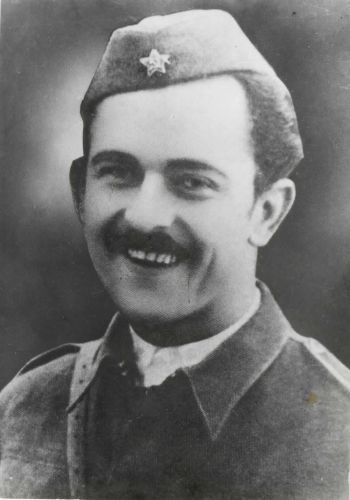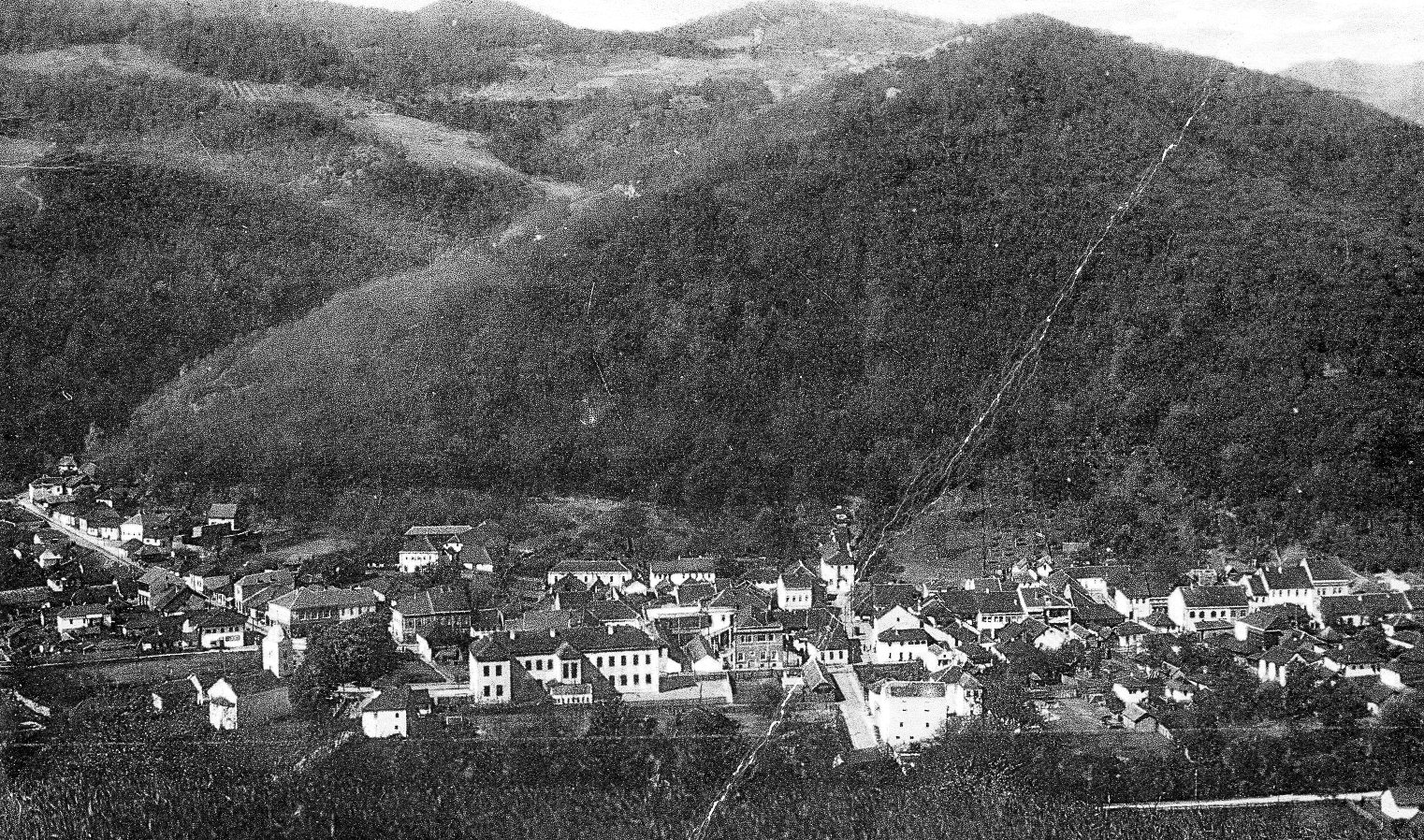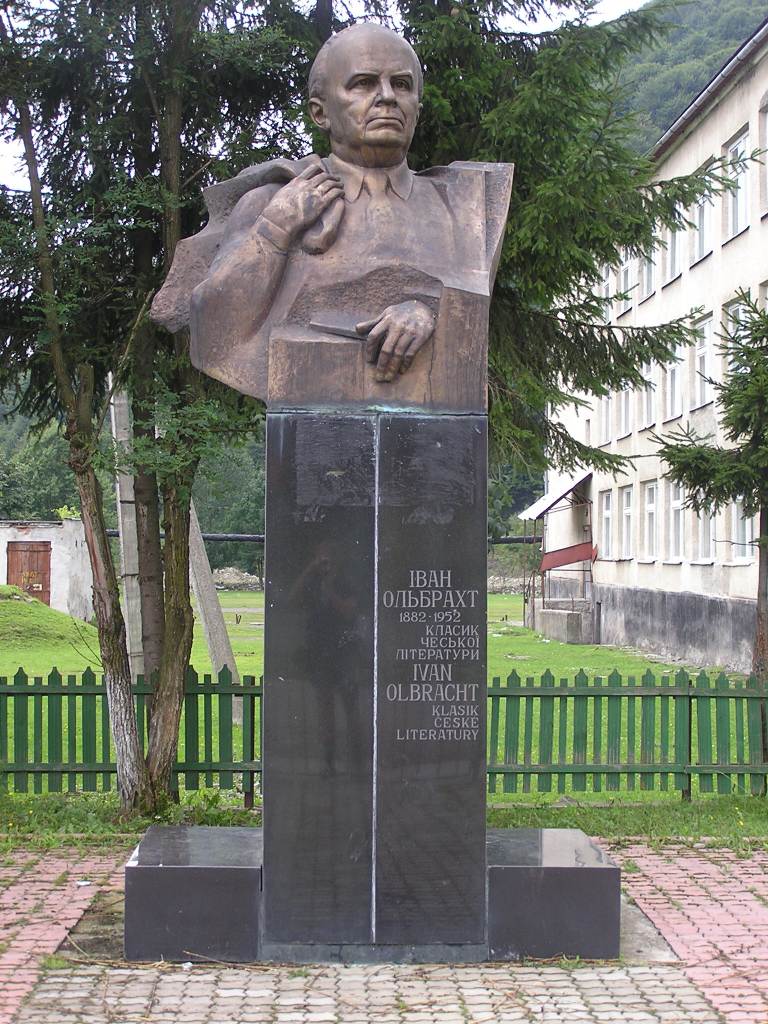|
Kajuh
Karel Destovnik, pen name and nom de guerre Kajuh (Slovene convention: ''Karel Destovnik – Kajuh'', 13 December 1922 – 22 February 1944) was a Slovenian poet, translator, resistance fighter, and Yugoslav people's hero. Life and work Kajuh was born in the town of Šoštanj in Slovenian Styria as the illegitimate child of Jože Destovnik and Marija Vasle. His parents later married on August 14, 1923. The sobriquet Kajuh comes from the oeconym of his grandfather's birthplace in Skorno near Šmartno ob Paki. After finishing primary school in 1933, he enrolled in the Celje First Grammar School. In 1934 he became a member of the Young Communist League of Yugoslavia (SKOJ). He was expelled from school due to his communist ideas. He then continued his schooling in Maribor but did not finish it due to World War II. Kajuh started writing poems before World War II. He began publishing his poems in the literary magazine for youth ''Slovenska mladina'' (Slovene Youth), edited by his ... [...More Info...] [...Related Items...] OR: [Wikipedia] [Google] [Baidu] |
Celje First Grammar School
The Celje First Grammar School ( sl, I. gimnazija v Celju) is a coeducational nondenominational state secondary general education school for students aged between 15 and 19 in Celje, Slovenia. It was the first high school built in the region, established in 1808 by the Austrian Empire. Initially, the language of instruction was only German, although the great majority of the pupils came from the Slovene Lands. In 1895, the first classes with Slovene as the language of instruction were established. German nationalists in Austria-Hungary fiercely opposed this move, which resulted in a government crisis and fall of the cabinet of prince Alfred III. zu Windisch-Grätz. After the end of World War I and the formation of the State of Slovenes, Croats and Serbs (later Kingdom of Yugoslavia), the high school switched to Slovene as the language of instruction. During its 200-year history, many of its pupils have become prominent individuals. Prominent alumni * Anton Aškerc (1856–1912), ... [...More Info...] [...Related Items...] OR: [Wikipedia] [Google] [Baidu] |
Šoštanj
Šoštanj (; german: Schönstein) is a town in northern Slovenia. It is the seat of the Municipality of Šoštanj. The area is part of the traditional region of Styria. The entire municipality is now included in the Savinja Statistical Region. History Šoštanj was first mentioned in written documents dating to around 1200 as ''Schönstein'' in relation to its castle. As a market town it was first mentioned in 1348. It was given town status in 1919 and until the 1960s was the center of the Šalek Valley ( sl, Šaleška dolina). In 1963 nearby Velenje became the administrative center. Šoštanj again became a municipal center in the late 1990s. The town has a long leather-working history, with industrial-scale activity going back to 1788. The factory was owned by the Woschnagg family, a Germanized branch of the Vošnjak family, until it was nationalized in 1945. The processing factory was closed down in 1999. A leather industry museum is now open in the town. Mass graves Šoštan ... [...More Info...] [...Related Items...] OR: [Wikipedia] [Google] [Baidu] |
Slovenia
Slovenia ( ; sl, Slovenija ), officially the Republic of Slovenia (Slovene: , abbr.: ''RS''), is a country in Central Europe. It is bordered by Italy to the west, Austria to the north, Hungary to the northeast, Croatia to the southeast, and the Adriatic Sea to the southwest. Slovenia is mostly mountainous and forested, covers , and has a population of 2.1 million (2,108,708 people). Slovenes constitute over 80% of the country's population. Slovene, a South Slavic language, is the official language. Slovenia has a predominantly temperate continental climate, with the exception of the Slovene Littoral and the Julian Alps. A sub-mediterranean climate reaches to the northern extensions of the Dinaric Alps that traverse the country in a northwest–southeast direction. The Julian Alps in the northwest have an alpine climate. Toward the northeastern Pannonian Basin, a continental climate is more pronounced. Ljubljana, the capital and largest city of Slovenia, is geogra ... [...More Info...] [...Related Items...] OR: [Wikipedia] [Google] [Baidu] |
Dušan Pirjevec
Dušan Pirjevec, known by his nom de guerre Ahac (20 March 1921 – 4 August 1977), was a Slovenian Partisan, literary historian and philosopher. He was one of the most influential public intellectuals in post–World War II Slovenia. Early years and revolutionary activity Dušan Pirjevec was born in Solkan, which was then a suburb of the Italian town of Gorizia. His birthplace is now located in the Slovenian town of Nova Gorica. His father was the literary historian Avgust Pirjevec from Gorizia; his mother, Iva née Mozetič, came from a wealthy merchant family from Solkan. His sister, Ivica Pirjevec, later became an anti-Nazi agitator and was captured and killed by the Nazis in 1944 (a street in the Ljubljana neighbourhood of Tacen in the Šmarna Gora District bears her name). Soon after Dušan's birth, the family moved to Ljubljana, in what was then the Kingdom of Serbs, Croats and Slovenes, where his father worked as the chief librarian of the National Research Librar ... [...More Info...] [...Related Items...] OR: [Wikipedia] [Google] [Baidu] |
Lower Styria
Styria ( sl, Štajerska), also Slovenian Styria (''Slovenska Štajerska'') or Lower Styria (''Spodnja Štajerska''; german: Untersteiermark), is a traditional region in northeastern Slovenia, comprising the southern third of the former Duchy of Styria. The population of Styria in its historical boundaries amounts to around 705,000 inhabitants, or 34.5% of the population of Slovenia. The largest city is Maribor. Use of the term In the 19th century the Styrian duchy, which existed as a distinct political-administrative entity from 1180 to 1918, used to be divided into three traditional regions: Upper Styria (''Obersteiermark''; ''Zgornja Štajerska''), Central Styria (''Mittelsteiermark''; ''Srednja Štajerska''), and Lower Styria, stretching from the Mur River and the Slovene Hills in the north down to the Sava. Upper Styria and Central Styria, predominantly German-speaking, today form the Austrian state of Styria (''Steiermark''). The southern third, predominantly Slovene- ... [...More Info...] [...Related Items...] OR: [Wikipedia] [Google] [Baidu] |
Ivanjica
) , motto = , image_map = , map_caption = , pushpin_map_caption = Location within Serbia##Location within Europe , pushpin_relief = 1 , pushpin_map = Serbia#Europe , coordinates = , coor_pinpoint = , coordinates_footnotes = , subdivision_type = Country , subdivision_name = , subdivision_type1 = Region , subdivision_name1 = Šumadija and Western Serbia , subdivision_type2 = District , subdivision_name2 = Moravica , subdivision_type3 = Settlements , subdivision_name3 = 49 , established_title = Village status , established_date = 1833 , established_title1 = Town status , established_date1 = , founder = , seat_type = , seat = , government_footnotes = , leader_party = SNS , leader_title = Mayor , leader_name ... [...More Info...] [...Related Items...] OR: [Wikipedia] [Google] [Baidu] |
Kingdom Of Yugoslavia
The Kingdom of Yugoslavia ( sh-Latn-Cyrl, separator=" / ", Kraljevina Jugoslavija, Краљевина Југославија; sl, Kraljevina Jugoslavija) was a state in Southeast and Central Europe that existed from 1918 until 1941. From 1918 to 1929, it was officially called the Kingdom of Serbs, Croats and Slovenes ( sh-Latn-Cyrl, separator=" / ", Kraljevina Srba, Hrvata i Slovenaca, Краљевина Срба, Хрвата и Словенаца; sl, Kraljevina Srbov, Hrvatov in Slovencev), but the term "Yugoslavia" (literally "Land of South Slavs") was its colloquial name due to its origins."Kraljevina Jugoslavija! Novi naziv naše države. No, mi smo itak med seboj vedno dejali Jugoslavija, četudi je bilo na vseh uradnih listih Kraljevina Srbov, Hrvatov in Slovencev. In tudi drugi narodi, kakor Nemci in Francozi, so pisali že prej v svojih listih mnogo o Jugoslaviji. 3. oktobra, ko je kralj Aleksander podpisal "Zakon o nazivu in razdelitvi kraljevine na upravna območja ... [...More Info...] [...Related Items...] OR: [Wikipedia] [Google] [Baidu] |
Jaroslav Seifert
Jaroslav Seifert (; 23 September 1901 – 10 January 1986) was a Czech writer, poet and journalist. Seifert was awarded the 1984 Nobel Prize in Literature "for his poetry which endowed with freshness, sensuality and rich inventiveness provides a liberating image of the indomitable spirit and versatility of man". Biography Born in Žižkov, a suburb of Prague in what was then part of Austria-Hungary, Seifert's first collection of poems was published in 1921. He was a member of the Communist Party of Czechoslovakia (KSČ), the editor of a number of communist newspapers and magazines – ''Rovnost'', ''Sršatec'', and ''Reflektor'' – and the employee of a communist publishing house. During the 1920s he was considered a leading representative of the Czechoslovak artistic avant-garde. He was one of the founders of the journal Devětsil. In March 1929, he and six other writers left the KSČ after signing a manifesto protesting against Bolshevized Stalinist-influenced tendencies i ... [...More Info...] [...Related Items...] OR: [Wikipedia] [Google] [Baidu] |
Ivan Olbracht
Ivan Olbracht, born Kamil Zeman (6 January 1882, Semily, Bohemia – 20 December 1952, Prague) was a Czech writer, journalist and translator of German prose. Biography The son of writer Antal Stašek and his Jewish-born Catholic convert wife Kamila Schönfeldová. Olbracht studied law and philosophy in Prague and Berlin, he left before graduation, however, choosing the career of a journalist. In 1905, he first began editing a social-democratic workers' newspaper in Vienna (', Historical Papers), where he worked until 1916. When he first began publishing fiction, he primarily focused on stories and novels with a psychological theme. This phase of his writing life coincided with the First World War. His works after the War are an experimentation in blending fiction with real events. Later, he became an editor in Prague (', The People's Right). In 1920, he spent six months living in the Soviet Union. The following year, he joined the Communist Party of Czechoslovakia and began w ... [...More Info...] [...Related Items...] OR: [Wikipedia] [Google] [Baidu] |
Serbia
Serbia (, ; Serbian: , , ), officially the Republic of Serbia (Serbian: , , ), is a landlocked country in Southeastern and Central Europe, situated at the crossroads of the Pannonian Basin and the Balkans. It shares land borders with Hungary to the north, Romania to the northeast, Bulgaria to the southeast, North Macedonia to the south, Croatia and Bosnia and Herzegovina to the west, and Montenegro to the southwest, and claims a border with Albania through the Political status of Kosovo, disputed territory of Kosovo. Serbia without Kosovo has about 6.7 million inhabitants, about 8.4 million if Kosvo is included. Its capital Belgrade is also the List of cities in Serbia, largest city. Continuously inhabited since the Paleolithic Age, the territory of modern-day Serbia faced Slavs#Migrations, Slavic migrations in the 6th century, establishing several regional Principality of Serbia (early medieval), states in the early Middle Ages at times recognised as tributaries to the B ... [...More Info...] [...Related Items...] OR: [Wikipedia] [Google] [Baidu] |
František Halas
František Halas (3 October 1901 in Brno – 27 October 1949 in Prague) was one of the most significant Czech lyric poets of the 20th century, an essayist, and a translator. Life Born as the son of textile worker, Halas worked as bookseller. He was self-taught, without higher education. After 1921 he started publishing in the communist newspapers ''Rovnost'' and ''Sršatec'', and in 1926 he became an editor at the Prague publishing house Orbis. During World War II he was active in the resistance movement A resistance movement is an organized effort by some portion of the civil population of a country to withstand the legally established government or an occupying power and to disrupt civil order and stability. It may seek to achieve its objective ..., and after 1945 he was engaged at the Ministry of Information. Work poetry: *''Sepie'' (1927) *''Kohout plaší smrt'' (1930) *''Tvář'' (1931) *''Hořec'' (1933) *''Dělnice'' (1934) *''Staré ženy'' (1935) *''Dokořán ... [...More Info...] [...Related Items...] OR: [Wikipedia] [Google] [Baidu] |






